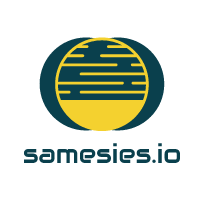Coding has become a key skill in today’s world, where almost every device or program we come across is powered by code. Today, software development is not only the work of programmers, but also an opportunity for people from different professions to automate processes, improve the quality of work, and even create their own products. For a beginner, the world of programming can seem intimidating., but with the right approach you can master this skill from scratch.
What is programming and why is it important in the modern world?
Programming is the process of writing instructions for a computer to execute. These instructions are combined into a program that can perform a variety of tasks, from simple calculations to complex computational processes. Knowledge of programming opens up many opportunities for automation, analytics and creativity in any field. It is important to understand that a computer is not capable of thinking like a human. It can only interpret and execute the commands we give it, so the ability to program requires logical thinking and the ability to clearly formulate problems.
Modern technology and digitalization make programming a necessary skill. Programs control everything: from smartphones and household appliances to banking systems and transport networks. Therefore, specialists in this field remain in demand, and the ability to write code gives a competitive advantage in the labor market. Learning to code will help you better understand how modern technology works and how it can improve or change business processes, personal productivity, and society as a whole.
Choosing a programming language: how to decide on the first language
Choosing your first programming language is an important step that can impact your future learning. Every programming language has its own characteristics and applicability to certain tasks. Here are a few languages that are especially popular among beginners:
- Python: One of the easiest to learn, with clear syntax and extensive capabilities. Used in web development, data analytics, artificial intelligence and many other fields.
- JavaScript: Ideal for web development as it runs directly in the browser. Suitable for creating interactive web applications and allowing you to get started without installing additional software.
- Java: A popular language for developing mobile applications, server programming and enterprise systems. Good for beginners who plan to work in large companies.
- C++: More complex than Python and JavaScript, but useful for understanding memory management and low-level programming. Suitable for system applications and game development.
- Ruby: A simple and flexible language used to create web applications. Suitable for those who want to start by exploring simple and intuitive language.
When choosing a language, it is important to consider not only its simplicity, but also your own goals. If you want to develop websites, JavaScript would be a great choice, and Python is better suited for data analysis and science.
Basic programming concepts you need to know from the start
When learning to program, it is important to understand that behind the code there are basic concepts that allow you to build logic and control the operation of programs. One of the basic ideas is understanding variables, which serve as containers for storing data. Variables help you remember values, change them, and reuse them in your code, which is especially important when creating complex programs.
Another important concept is conditional expression. It allows the program to make decisions, perform some actions when conditions are met and others when they are not. Loops such as for and while are also often used to repeat certain actions. They allow you to run the same code multiple times, which is very useful when you need to repeat the same actions with different data. It’s also worth exploring functions that allow you to combine code into logically connected blocks. Functions help make code more understandable and allow it to be reused, reducing work and increasing readability.
Learning Recommendations: Resources, Courses, and Books for Beginners
Today there are many resources that help in learning programming. First of all, these are interactive platforms such as Codecademy, freeCodeCamp and Coursera. These sites offer courses for beginners with practical exercises that help reinforce knowledge. Interactive platforms are especially useful for beginners, as they allow you to immediately apply theory into practice. Many of them also provide certificates, which can be useful for future employment.
In addition to online courses, it is important to use books and tutorials. The classic book Eloquent JavaScript is ideal for those who want to learn JavaScript, while the Python Crash Course is useful for new Python programmers. Many books include exercises and examples to help you understand the material more deeply. However, it is important to remember that books and courses are only part of the learning process. To truly master programming, you need to practice a lot, solve problems, and participate in projects.
Practice and implementation of knowledge: tips for first projects
Practice is the key to learning programming. After learning the basics, it is important to move on to developing your own projects that will help consolidate the acquired knowledge. Start with simple tasks, for example, creating a calculator or a text game. These projects will allow you to understand how program structures work and develop your coding skills. Participating in the development of real-life applications allows you to see how small details add up to the big picture and gives you the opportunity to experience common problems in practice.
After completing simple projects, you can move on to more complex tasks, such as creating your own website, developing an application to track tasks, or even participating in open-source projects. Such projects allow you not only to strengthen your skills, but also to gain experience working with code in real conditions, as well as learn to work with other programmers. Projects will help you build a portfolio, which will be a big advantage when finding a job.
Learning to program is a fun and challenging process that requires patience and persistence. It is important for beginners to understandthat mastering basic skills is only the first step towards a professional level. Constant practice and work on real projects will help you deepen your knowledge and understand how to apply it in real life. Programming opens up endless possibilities for creativity, automation, and career growth, making it one of the most in-demand and promising professions.
Mastering basic skills usually takes several months of regular practice. Reaching a professional level may require several years of work and development in a particular field.
Python is considered one of the best languages for beginners due to its simple syntax and many learning resources available.

